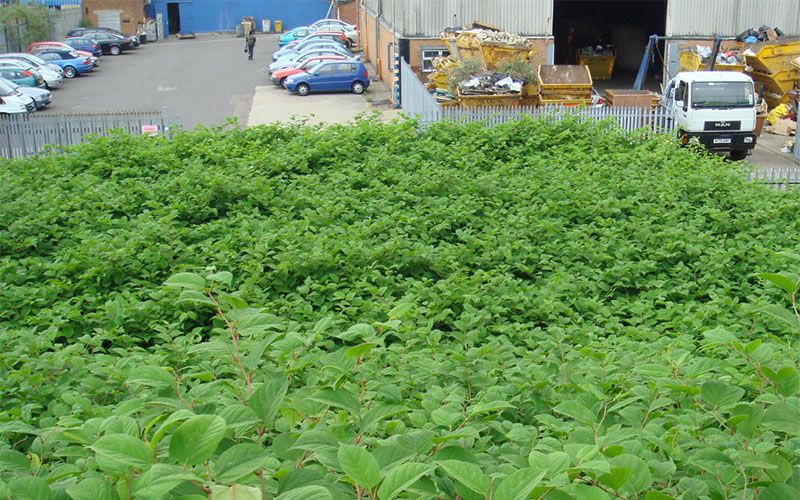Cover Japanese knotweed expenses with this tax relief for businesses!

What is land remediation relief?
Land Remediation Relief is a tax relief the government give to companies who have bought contaminated land. Since 2009, limited companies, property owners, investors and developers can claim back up to 150% of the money spent on removing contaminates from their land.
If you are a tax-paying company in the UK, you can claim Land Remediation Relief for up to three years after money was spent on removing the costly contaminates.
When is land considered contaminated?
The government say land is contaminated when: “substances are causing or could cause significant harm to people, property or protected species”. Some substances include: arsenic, gases, asbestos, chemicals and, of course, Japanese knotweed. You can start to claim Land Remediation Relief for Japanese knotweed and foe if you have taken action to remove the culprit from land and/or buildings.
Get land remediation relief for Japanese knotweed
Getting Land Remediation Relief for work done on Japanese knotweed is a no brainer. Better still, you can claim costs back even if Japanese knotweed was not visible on the land before you bought it. After all, Japanese knotweed can lie dormant below the surface for around 20 years before showing its invasive face.
Also, Japanese knotweed is like an iceberg; that is, most of it is hidden below ground in a root system of epic proportions. This rhizome can grow horizontally seven metres in any direction from its core. No wonder owners of neighbouring land argue about where the pesky plant originated!
What can you claim back through land remediation relief?
When dealing with Japanese knotweed, you can claim back many things through Land Remediation Relief. For example, you can claim for site survey reports, consultancy fees, removal costs and more. However, there are a few exclusions.
Exclusions to land remediation relief
There are four reasons you may be excluded from taking Land Remediation Relief for Japanese knotweed costs. These exclusions say:
- Your business (its people) must not be at fault for the Japanese knotweed growth on your site.
- Your company bought the land only to run a business or trade.
- The cost of removing Japanese knotweed should not be financed by other funds, such as a grant.
- You must have purchased the site at full price and not had a discount due to the presence of knotweed.
For a more comprehensive list of exclusions, we suggest you contact a specialist solicitor.
Where Japanese knotweed is most prevalent
Japanese knotweed spreads where it wants to. However, the invasive weed is often found where fly-tipping occurs, on newly-developed land, near rivers and streams and, historically, railway lines.
If your business operates near such areas, it is worth learning how to identify Japanese knotweed before it grows bigger and becomes more expensive to eradicate.
Be proactive about eradication
HMRC will only grant your business Land Remediation Relief if you can prove you have been proactive about eradication. So, you should act fast and seek advice from qualified Japanese knotweed surveyors as soon as possible.
To excavate or treat?
To eradicate Japanese knotweed, and thus claim Land Remediation Relief, you must decide if you want to treat the contaminate with herbicides or excavate it from site.
Herbicides
Usually, herbicide treatments are applied over two or three years. Herbicides are also the preferred choice for many homeowners and small businesses, because it is less costly. As long as a qualified Japanese knotweed expert is treating the site, you should be able to claim Land Remediation Relief without any trouble.
Excavation
Excavation is the best Japanese knotweed removal method for developers and commercial businesses that want to get back to, well … business.Knowing how to deal with Japanese knotweed may not be your strong point, but it is ours. Talk to us about eradication today.